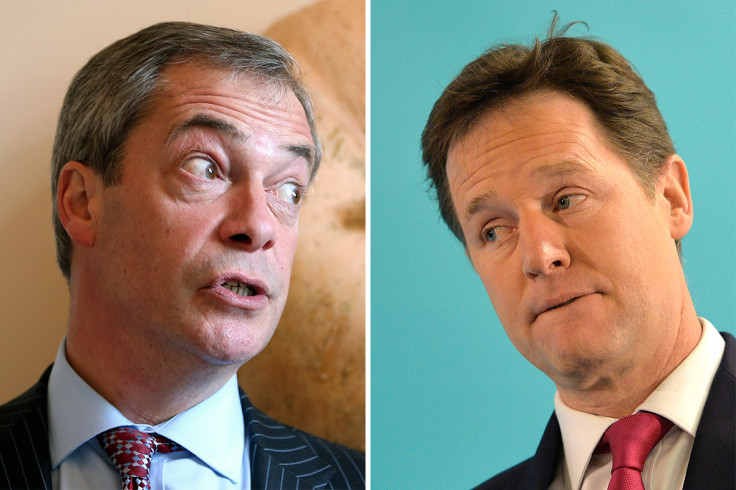Shock Verdict: Much-Hyped Euro Clash Between Lib Dem Clegg and Ukip's Farage Was Rather Good

If the Nigel Farage-Nick Clegg clash hadn't already been hyped up enough, the opening suggestion from moderator Nick Ferrari that we were about to see history being made did the trick.
The nation was instantly moved to the edge of its seat at the prospect of an event to rival the moon landing or, perhaps, the Russian revolution.
Well, the nation (at least the bit that bothered to watch in the first place) would have been severely disappointed because surprise, surprise, history remained resolutely un-made.
But, after an hour of the two men "banging on about Europe" in the sort of passionate debate the two big party leaders are desperate to avoid, it became evident that this was actually quite a good thing after all.
You needed to listen carefully, but there were some genuine facts on show along with the usual rhetoric and assertion. The format, similar to the general election leaders' debates, was just about right and Ferrari moderated with a sure touch, cutting the men short and pressing for answers when needed.
The Ukip leader will have counted the event a significant win, a view supported by an instant YouGov poll giving him a 57% score compared to Clegg's less-than-impressive 36%. The betting is that will narrow with more consideration.
But his victory was largely based on the fact the debate had happened in the first place, giving him a huge, national platform, which he clearly exploited to the full.
It was when it came to the facts that he was at his least sure-footed, regularly being challenged to back up his assertions.
Two of his party's leaflets were waved under his face, one about the number of Bulgarians and Romanians eligible to flood into the UK, 29 million, and one about the daily cost of EU membership to the UK, £55 million a day.
Both were wrong. The first because there aren't 29 million people in those two countries in the first place. The second because it did not include the refund the UK gets back from Europe, not to mention any other benefits.
The deputy prime minister, on the other hand, was at his weakest when he resorted to sweeping statements about what was best for Britain. Farage is always going to win when it comes to "I'm backing Britain" generalisations and flag-waving. That is what he does.
So when Clegg talked about the justice system and EU collaboration on tackling crime and terror, he was strongest. When he talked about wanting a Great Britain not a Little England, he was less convincing.
As the hour progressed, Clegg's more reasoned, calm and detailed approach came to the fore while Farage began to rant and fall back on ill-defined Brussels bashing.
So, irrespective of that instant poll, there was a general feeling that both men scored points. Whether any minds were really changed is another matter. That might take more work like this.
But it has certainly set the scene for the second head-to-head in a week's time which, and here's another surprise, should be hugely watchable.
© Copyright IBTimes 2025. All rights reserved.





















